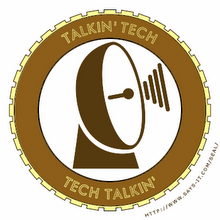How does OS X compare with Linux
This is the title of a thread I saw at my *other* online home podcentral.ph.
The techie in me simply can't pass up this question left unanswered so I concentrated well and attempted to answer the question the best I can and here's what I had to say:
Mac User/Windows User/Occasional Linux User's Point of View:
Linux and OS X has the same "ancestry", the *nix and with this impeccable pedigree, both OS has superior security over Windows.
Between Linux and OS X, Both are stable but IMHO, better performancecan be achieved under OS X since Apple has *FULL CONTROL* over itshardware thuscompatibility is almost 100%, in Linux, if a hardware has someincompatibility, you'll need to download and install fixes to make themwork.
Linux and OS X has the same "ancestry", the *nix and with this impeccable pedigree, both OS has superior security over Windows.
Between Linux and OS X, Both are stable but IMHO, better performancecan be achieved under OS X since Apple has *FULL CONTROL* over itshardware thuscompatibility is almost 100%, in Linux, if a hardware has someincompatibility, you'll need to download and install fixes to make themwork.
I had to stop here because I was answering the question from a wi-fi hotspot while waiting for my wife who was in her dentist but had already called me up so I can fetch her. Upon getting home later, I continued on with my answer with this additional post:
Let me first correct my statement in the previous post. Under Linux,hardware incompatibilities *may* be fixed by downloading and installingdriversbut most Linux users may prefer to compile their own device drivers tomake "stubborn" hardware compatible with their machines.
The same principle applies when it comes to applications. Under Linux,whenever an application does something peculiar, a user can oftendownloadpatches that fixes those peculiarities (read: bugs) but since 99.99% ofprograms available for Linux is Open Source, the user has the option totake apeek at the application's source code and fix the problem himself. Thismay not be the same with OS X. Although the core of OS X is Open Source(OpenBSD also known as Darwin), not all applications available for itis open source -- although a lot of them are.
In terms of ease of use -- hands down, OS X wins in this category. As Imentioned in the previous post, I have used all three OS's (and a fewmorethat I won't care to mention here) and in terms of user friendliness,OS X is king. Switching from Windows to OS X may not be as smooth as weallwant but this is because users switching from Windows already havedeeply entrenched habits which are all rendered useless under OS X.With Linux,its a different story altogether -- power users in Linux has toconstantly use the Terminal application (Terminal.App in OS X) tochangeconfigurations while all those functions are fully accessible in OS X'sGUI interface -- making OS X boxes relatively easier to use andmaintain.
One of the biggest problems with Windows is security. In order forWindows to run with minimal problems, it has to have an anti-virus andanti-spyware running in the background. Not to mention the GIGABYTES ofsoftware update that has to be downloaded and installed monthly. Allthesemay make Windows a fairly useable OS but since it has to run memoryresident programs to function smoothly (anti-virus and anti-spyware), atypicalWindows XP machine needs around 512 MB or RAM to run a marginallystable system. There are Linux distro that stably run at a meager 64 MBRAM. Itcan do this because there's no need for memory resident programs suchas anti-virus and anti-spyware.
The same principle applies when it comes to applications. Under Linux,whenever an application does something peculiar, a user can oftendownloadpatches that fixes those peculiarities (read: bugs) but since 99.99% ofprograms available for Linux is Open Source, the user has the option totake apeek at the application's source code and fix the problem himself. Thismay not be the same with OS X. Although the core of OS X is Open Source(OpenBSD also known as Darwin), not all applications available for itis open source -- although a lot of them are.
In terms of ease of use -- hands down, OS X wins in this category. As Imentioned in the previous post, I have used all three OS's (and a fewmorethat I won't care to mention here) and in terms of user friendliness,OS X is king. Switching from Windows to OS X may not be as smooth as weallwant but this is because users switching from Windows already havedeeply entrenched habits which are all rendered useless under OS X.With Linux,its a different story altogether -- power users in Linux has toconstantly use the Terminal application (Terminal.App in OS X) tochangeconfigurations while all those functions are fully accessible in OS X'sGUI interface -- making OS X boxes relatively easier to use andmaintain.
One of the biggest problems with Windows is security. In order forWindows to run with minimal problems, it has to have an anti-virus andanti-spyware running in the background. Not to mention the GIGABYTES ofsoftware update that has to be downloaded and installed monthly. Allthesemay make Windows a fairly useable OS but since it has to run memoryresident programs to function smoothly (anti-virus and anti-spyware), atypicalWindows XP machine needs around 512 MB or RAM to run a marginallystable system. There are Linux distro that stably run at a meager 64 MBRAM. Itcan do this because there's no need for memory resident programs suchas anti-virus and anti-spyware.
Feel free to chime in to add or react to this answer. Those reactions/additions will certainly add to my arsenal in case the same question is asked of me again in the future.


3 comments:
gee, thanks for sharing this, i am seriously considering migrating from windows XP to Ubuntu Linux.
So my plan is to have my machine configured for a dual-boot system so that i can use Linux while the rest of my family can still use XP.
Can you share me some advice?
My concern is mainly about my hardware compatibilities with Ubuntu Linux.
As you said, it appears that I may have to really search the net for the appropriate drivers for my hardware in case they do not jive with Linux.
Hi Jhay,
I'll post a more comprehensive answer to your answer tomorrow.
But to give you an idea, I get better results with relatively "older" machines. Life for instance, I had some problems with a brand new computer whenever I install Ubuntu on it -- I get some incompatibilities with the video adapter. But when I tried installing it on a 6-month old computer, everything went well and I didn't encounter any problems with any drivers whatsoever.
But since I don't have an idea on what hardware you will be using, YMMV (your mileage may vary)
As I've said, I'll post a longer answer tomorrow... ABANGAN! =)
thanks sir bernie,
i'd be waiting for that post.
I also visited the pinoylinux.com site and posted my hardware specs for the experts there to see if there would be any compatibility issues when I install linux on my machine.
If your 6-mo old machine worked well with linux (is it Ubuntu?) then i think it will work quite well with my three-year-old pc. hehe
Still, i'd be hanging around for that post of your sir, thanks and cheers!
Post a Comment